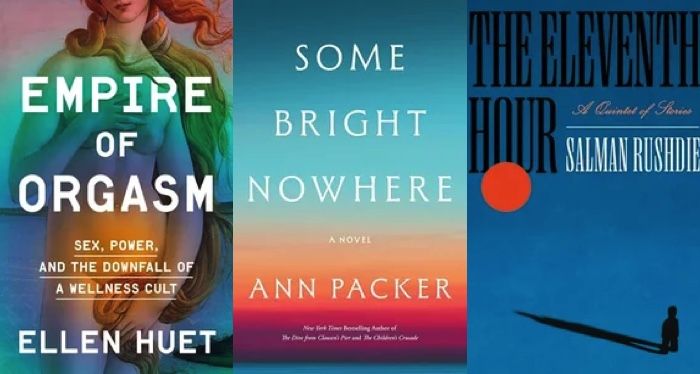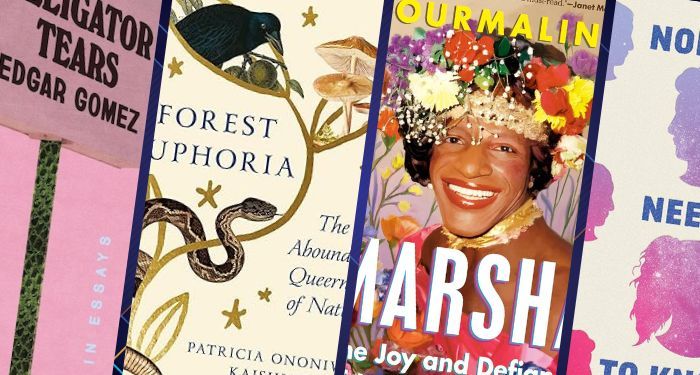Two years ago in fall 2023, Book Riot teamed up with the EveryLibrary Institute–a nonpartisan nonprofit that supports libraries nationwide–to create and administer three surveys related to parental perceptions of the library. These surveys explored how parents believe school and public libraries were functioning in the current climate, concerns about book banning in those libraries, trust in librarians as professionals, and the content available in library books, among other related topics. Results and reports on those three parental perceptions surveys are available here.
Insights gleaned from the surveys resulted in a six-part series of posts that explored some of the nuances, complexities, and key takeaways of the state of book censorship and libraries. These posts helped build a framework for thinking about effective and necessary actions to protect these institutions of democracy, both for supporters and library workers themselves, as well as helped shape thinking about what may come next:
Data Overwhelmingly Supports Libraries and Library Workers Book Banning Will Not Stop at Schools Be Your Own Library Advocate The Library Trust Matrix American Intolerance and Book Bans Why Do We Even Read?With two more years of unfettered attacks on books and libraries, Book Riot and the EveryLibrary Institute have teamed up again to gauge parental perceptions of libraries. In late August, the organizations developed two new surveys. The first explored parental perceptions of the public library, while the second assessed parental perceptions of the school library.
The 2025 Parental Perceptions of Libraries surveys have just completed their time in the field. Over the next several weeks, results and insights from those will be shared here, on EveryLibrary Institute’s website, and in other outlets focused on understanding the current landscape of American censorship and libraries.
This biennial survey series includes many similar questions to those posed in 2023. Among the questions are beliefs about a child’s safety in the library, who is responsible for deciding what materials are available in the library, and ongoing attempts to legislate the library and its workers. Some questions seek to understand when parents believe specific topics are acceptable for children, including books about gender and sexuality, books about religious beliefs, both Christian and otherwise, books by and about marginalized people, and books specifically exploring trans themes and topics. Over the last two years, it’s become clear what books have taken the spotlight when it comes to censorship, and part of the goal of these surveys is to better understand whether these topics are widely controversial or whether such discourse is limited to a small, politically motivated population.
Other survey questions include understanding how much parents are engaged with their local libraries, parental perceptions of why certain books are being banned in schools and public institutions, and their beliefs about when it is appropriate to withhold access to materials.
The last large-scale survey of libraries and book banning in America was put together by The Knight Foundation in 2024 and shared widely last summer. Since then, we’ve seen a new administration sworn in and an unprecedented rise in attacks on the fundamental rights of Americans to access information. Libraries and the materials within them have been targets, both nationally and internationally, as with the Department of Defense Education Activity schools. The Institute of Museum and Library Services–the only federal agency dedicated to public libraries and museums–was gutted in an Executive Order in March 2025, with its possible closure imminent as soon as September 30. We’ve seen politicians wield their power to overstep their own state laws by demanding schools remove books they deem “pornographic” or face consequences.
Elsewhere, politically-motivated parents are handed the keys to deciding what books are available in their public schools. At the same time, capitalists sell those same schools AI-powered book-banning software to “help” the process (undermining the professionals in those institutions and ignoring the need to safeguard the personal information of minors). We’ve also seen a significant circuit court ruling over whether or not patrons have a First Amendment Right to library materials and a Supreme Court case that purports to allow religious parents to remove their students from classroom lessons that include books with positive portrayals of LGBTQ+ people.
That’s not to touch the wave of new laws related to book bans, either implemented to restrict content or ensure that content remains protected by the First Amendment.
Much has changed over the past two years. Our goal is not only to understand this moment in time when it comes to how parents view their local public libraries. It is also meant to allow us to compare with where we were two years ago. We’ll highlight the good, the bad, the ugly, and the promising, hoping to create opportunities to impact change and empower library advocates with real data and insight to do good work right in their communities.
Highlights and insights from the new Book Riot and EveryLibrary Institute parental perceptions surveys will begin to appear next week, and a full report is anticipated to be released during Banned Books Week in early October 2025.
Book Censorship News: September 5, 2025
Don’t get too excited about a shorter roundup this week. It was a holiday week, and US schools are just starting. It’s also worth addressing the reality that these roundups have gotten smaller over the last year. This is due to continued closure of local news outlets, a shrinking pool of journalists covering the issue (it’s no longer going to generate clicks, which is what corporate-owned media needs to stay afloat), more stories not being shared because they’re quiet/soft censorship, and stories which are focused on big removals or censorship, rather than single titles here and there.
State Rep. Hillary Hickland (Texas) alleges that the Killeen Independent School District has inappropriate books on its shelves and names the books she believes need to be removed. She’s threatened to bring in law enforcement. So much for “local control.” Clean Up Alabama, one of the state’s book-banning groups, is itching to get the Alabama Public Library Service (APLS) to ban not just “trans” books from libraries statewide but any and all LGBTQ+ books. Recall that APLS provides funds to public libraries and will release funds only when libraries bow to their demands (see the situation at Fairhope). The masks are entirely off now. There are 200+ books to be removed from Edmonton, Alberta, Canada, schools, as their politicians drink the poison being presented to them by far-right groups modeling their efforts after American groups. Every single bit of the story of Alberta’s government demanding books be removed from schools sounds like the early parts of book banning in America. One district in Alberta is seeing the school board deeply frustrated by the province’s removal of local control over books and policies allowed in their district. Mmmhmmm. And just like that, Alberta politicians backed off the plan to ban books province-wide after massive backlash. We’ll see if it actually happens, but imagine if this happened in America. Instead, we get right-wing politicians threatening schools with punishment for not listening to their rules. Duval County Schools (FL) want to create a new parental book review committee to continue in efforts to ban books in the district. This is an excellent piece about how the right has manufactured all of its panics and has been extremely open about it. It follows from the panic around critical race theory to “porn” in school libraries to today’s trans athlete panic.












 Bengali (Bangladesh) ·
Bengali (Bangladesh) ·  English (United States) ·
English (United States) ·